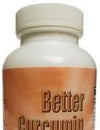No products in the cart.
Shoulder pain is very common, and the rotator cuff muscles and tendons are often where the problem is located.
Tears of the rotator cuff also happen more often as we get older, but age in itself is not really the main reason.
As usual, our biochemistry is involved, and certain biochemical changes have been linked to rotator cuff tears.
This was investigated in the following study. Participants with rotator cuff tears and participants without any tendon problems were compared (Abboud JA, Kim JS, 2010).
In this research, it was found that total cholesterol, triglycerides, and low-density lipoprotein cholesterol LDL were higher, and high-density lipoprotein (HDL) were lower in the participants with rotator cuff tears compared to the participants without tendon problems.
If you want to reduce your risk for rotator cuff ruptures, it would make sense to adapt a diet and lifestyle which would accomplish that.
If you did that not only would you improve your odds for not developing a rotator cuff problem, but you would also reduce your risk for cardiovascular problems.
When you improve your biochemistry, you don’t only see improvement in one area, but several areas because the reasons for chronic problems tend to be the same.
This makes it a lot easier.
Hence, making changes to the way you eat is an effective way to improve your biochemistry.
Reference:
Abboud, J. A., & Kim, J. S. (2010). The Effect of Hypercholesterolemia on Rotator Cuff Disease. Clinical Orthopaedics and Related Research, 468(6), 1493–1497. http://doi.org/10.1007/s11999-009-1151-9

Learn to Eat:
Recommendations that work. Foods that reduce rotator cuff tears. This is not a regular diet program.
Leave a comment






